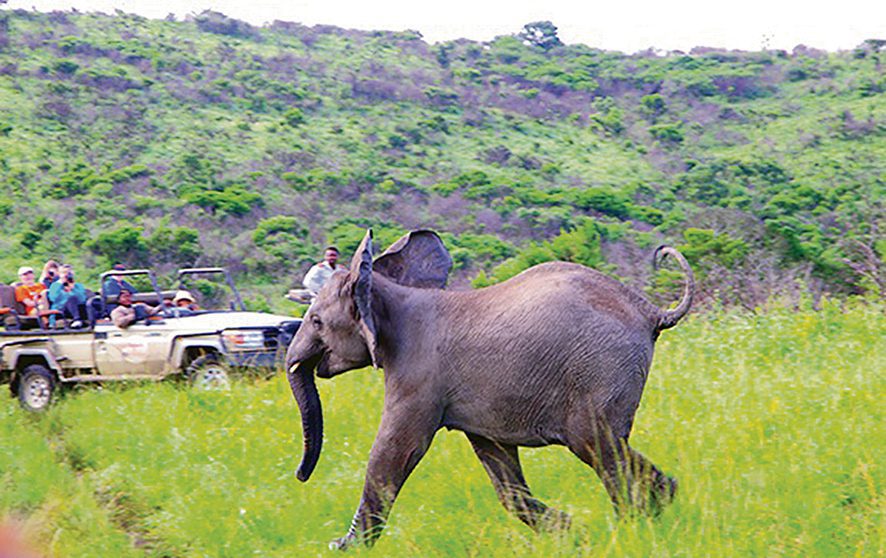Johannesburg- Successful land reform beneficiaries in the rural village of KwaCebekhulu outside Empangeni on the KwaZulu-Natal north coast have taken an unlikely route deciding to invest their settled land towards tourism and nature conservation.
In what has been defined as a historic agreement, last Thursday the Ubizo Communal Property Association representing the KwaCebekhulu community signed an agreement with Thula Thula Private Game Reserve for the land under its jurisdiction to be used for wildlife.
The northern region is the jewel of the province in terms of wildlife and heritage tourism, and is often frequented by international tourists.
Thomas Cebekhulu, the association’s chairperson, said the agreement was a product of extensive engagements with the community deliberating on the best land-use model that would benefit generations to come.
The land was previously under sugar producer Hulett and was used for sugarcane. “Initially we wanted to continue with sugarcane but we then had to explore other investment avenues. We consulted the community and conducted our own research,” said Cebekhulu.
“This is when we decided that tourism was a worthwhile investment. The land is also in close proximity to the game reserve, so tourism was ideal. In addition, there are few black role players in the tourism space, so this agreement is a game changer.”
He said about 1 133ha of land restored to the Ubizo community would be incorporated into Thula Thula.
“Among our many plans, we aim to build a Zulu traditional village and cultural centre for tourists visiting the game reserve. This will not only drive new jobs but it will create wealth for our people and for the next generations. Another portion of land is reserved for the elephants and other wildlife inhabitants.”
Thula Thula is a world-renowned tourism destination mainly for its elephant community.
Mthatheni Ngcobo, a local tourism operator, said the Ubizo community was a model for land restitution.
“We are a close-knit rural community who trust each other, unlike other communities who, upon receiving their land back, they would often fight among each other. Our case is different, we work together and every household gets what is due to them. We achieved this milestone through inculcating the culture of accountability on the committee representing the residents,” said Ngcobo.
In 2019, Deputy President David Mabuza officiated the presidential handover ceremony for the settled and finalised KwaCebekhulu land, and more than 2 500ha of land was returned.
The community, through Inkosi Nsikayezwe Cebekhulu on behalf of 194 households, lodged a land claim in 1995 wanting justice and dignity.
The land was forcefully taken from the community through draconian apartheid laws in the 1930s.
Community member Nonhlanhla Makhanya said of the R6-million received recently from the sugar producer, each household received R 30 000.
“The community has also seen substantial infrastructural development. A clinic and a community centre were built. Bursaries are also offered to matriculants,” said Makhanya.
Advocate Bheki Mbili, the provincial chief director for restitution support, said the success of the KwaCebekhulu community was a demonstration that if properly managed, the restitution process had the ability to yield economic spin-offs for communities. “Well-managed land reform projects create value for poor communities,” said Mbili.
To read more Business related news from Sunday World, click here.
Follow @SundayWorldZA on Twitter and @sundayworldza on Instagram, or like our Facebook Page, Sunday World, by clicking here for the latest breaking news in South Africa. To Subscribe to Sunday World, click here.
Sunday World




